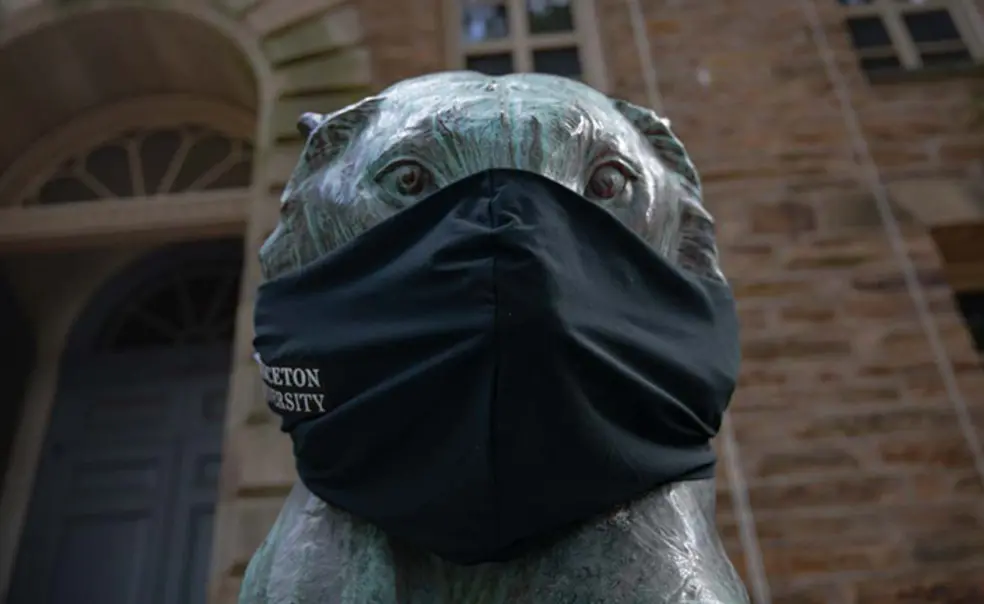University Relaxes COVID-19 Rules in Advance of Fall Semester
Vaccine boosters, asymptomatic testing no longer required; building access to expand
Princeton announced updates to its COVID-19 policies through an email to the campus community on July 28. The University is no longer requiring students or employees to receive COVID-19 booster shots, and the asymptomatic testing program is voluntary.
The revised visitor policy states that all guests must be vaccinated, have received a recent negative test, or wear a mask — as before — but the University will no longer require visitors to attest to their vaccination, testing, or masking status. However, hosts of guests can ask for attestations.
While the message “strongly encouraged” students and employees to receive all CDC-recommended COVID-19 booster doses, the primary vaccination series is now all that is required.
Similarly, Princeton asks that asymptomatic students and employees continue to test monthly “to help the University monitor variants circulating on campus,” but participation is no longer required. Those who are identified as a close contact of someone who tested positive for COVID-19 and those who travel are also encouraged to submit a test.
In classrooms and labs, instructors can require masks, but otherwise, the community is only expected “to be considerate and respond to” mask-wearing requests, according to the new guidance.
Building access expanded during the summer at Frist Campus Center, Firestone Library, and the University Chapel, and on Aug. 15, all other buildings resumed pre-COVID schedules.
Freshmen are scheduled to arrive Aug. 26, and fall semester classes begin Sept. 6.
The University said it is continuing to monitor conditions and may adopt new policies should circumstances change. The relaxed measures follow recommendations from scientists, physicians, public health experts, and Princeton senior administrators, according to the July 28 email. An online Q&A between Melissa Marks ’86, director of medical services at University Health Services, and Robin Izzo, Environmental Health and Safety assistant vice president, provided more information.












No responses yet